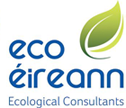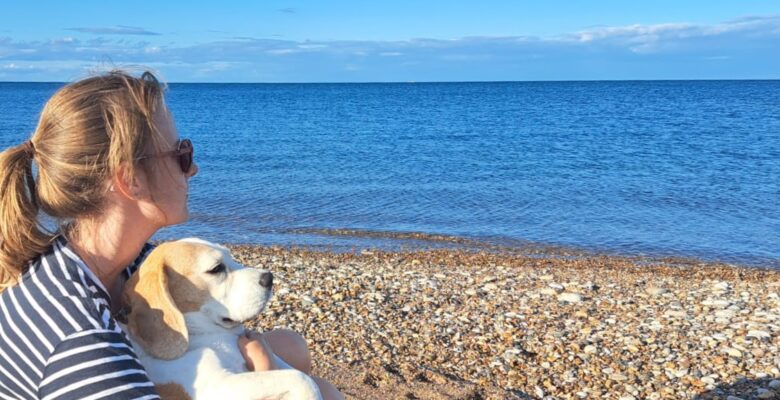As part of our ‘Meet the Team’ blog series, hear personally from our team members about their roles at EcoNorth and more. Today, meet Molly Dyson, our Assistant Ecologist.
Tell us a bit about yourself
I’m a recent graduate, having finished my MSc in the summer of 2022. Before this, I worked in the ground investigation industry for around two years in Oxford, after gaining my geology degree from the University of Hull.
During lockdown, I spent a lot of time outdoors and had a lot of time to reflect on where I wanted my future to go. From 2020 onward, I was fortunate enough to gain a new job ‘up north’ that allowed me to save up for my Master’s degree; targeting my ambitions towards a rewarding career in ecology. It was a challenging but rewarding transition.
Summarise your role at EcoNorth
I am one of three new hires that started in October 2022. After working with EcoNorth on bat surveys throughout the 2022 survey season, I was employed full-time. My first few weeks involved shadowing more experienced staff on site visits and gaining the relevant training for future project involvement. Since feeling more settled into the team, I have had rewarding opportunities to organise and partake in a great deal of site work, attend training days, write reports, and undertake figure creation on QGIS.
What got you into Ecology?
I have had an interest in ecology from a young age, but it never occurred to me that it could be a career until visiting sites as an engineer. I was exposed to ecologists working on construction sites, which is when I found myself more drawn to their work than my own. I asked around, attended the Geological Society of London’s Environment Network launch event, and got chatting to an ecologist based in Manchester. What he was describing sounded like the ideal job. From there, my desire to join an ecological consultancy nucleated into being.
Before this, I was an avid watcher of nature documentaries with my dad, and with my housemates at university. While working in Oxford, I was seeing tens of red kites a day, muntjacs down the road, and my first adder swimming the Thames. On camping trips, I’ve seen red squirrels further west, and hiked the Yorkshire Coast to see the rogue albatross and abundance of puffins (the latter piquing my interest in ornithology and inspiring my Master’s thesis).
What do you like most about working as an Ecology Consultant?
There is generally a good balance between field work and office work. One of the reasons I moved into this career was the chance to work outdoors more and turn my hobby into a career.
Due to the company’s size, I’ve had the chance to get a broad range of hands-on experience straight out of the gate. I have also had the opportunity to work on rewarding projects that have national importance to peatland habitat conservation, local habitat creation, and enhancing the wildlife benefits of various developments.
Describe the project you have worked on that you are proudest of. What did you do that worked out particularly well?
I was lucky enough to be offered training days with the project leaders of a nationwide peat mapping project down in Lincolnshire, Cambridge, and Peterborough. I was taught peatland vegetation and soil surveying over the course of two separate weeks, which allowed me to take away a lot of knowledge to apply in the field. I found the whole experience very rewarding and, along with my colleagues, have been able to submit a significant amount of surveys during my first couple of months in the field, with much praise from Natural England.
What do you see for the future?
With my career, I have a long way to go before settling on a specialism, however ornithology does appeal to me. I’m currently focused on rounding out my skillset, improving my botanical skills and dipping into newt surveying when possible. I’m eager to jump at any opportunity to train in subjects I’m less familiar with.
In terms of ecology as a whole, I believe this industry will become increasingly relevant as years pass and we reach near to the target year of the government’s environmental goals. The pandemic has given the world time to reflect on the environmental impacts of everyday life, especially travel and their own gardens; raising public awareness. As Biodiversity Net Gain becomes a legal requirement in November 2023, I predict the sector will expand exponentially and later find better ways to quantify the value of a site’s ecological systems.
Finally, what advice would you give to anyone starting out?
In terms of finding a job – don’t be afraid to contact consultancies or charities and ask for job opportunities. Sometimes the best way to express your passion for the role is to reach out and explain your availability to get involved. Most importantly, pursue any relevant volunteer work you can, to stand out from the crowds of applicants.
If you’re reading this in spring or summer, every consultancy in the region will be looking for bat surveyors right now – please sign up! You’ll be able to network on the job and gain invaluable experience to put on your CV.
Meet my Dog: Carly
Tell us a bit about yourself
I’m hyper but simultaneously a very lazy senior. I will sit on your shoulder like a parrot and sniff out an apple core from a mile away.

